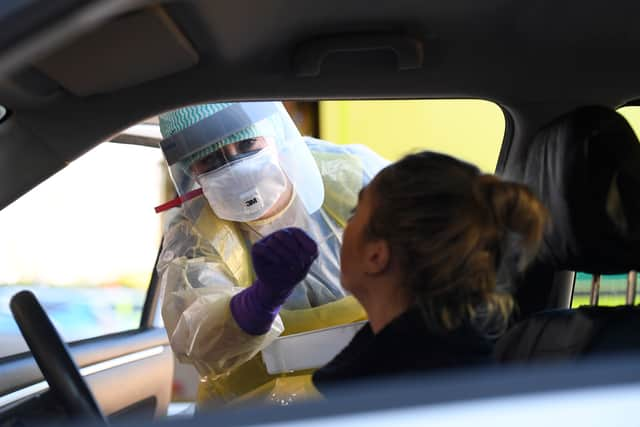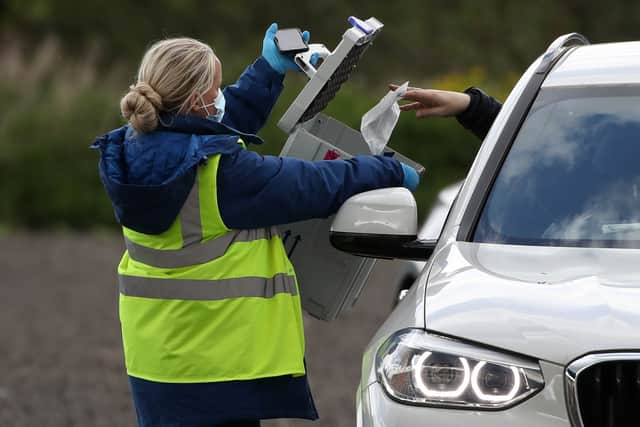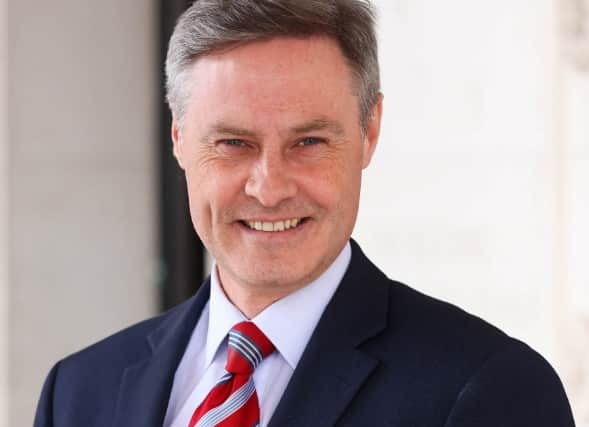LIVE UPDATES: Coronavirus NI - Incoming Economy Minister Paul Frew critical of NI Executive’s Covid restrictions
and live on Freeview channel 276
Scroll down for more on this story.
LIVE UPDATES: Coronavirus NI - 105 new infections detected in last 24 hours
Key Events
- 105 new infections and no new deaths were recorded in the last 24 hours
- Incoming Economy Minister Paul Frew critical of NI Executive’s Covid restrictions
- Vaccines have “broken” the link between infections, hospital admission and deaths says NHS Providers chief executive Chris Hopson
- Eight in 10 adults (79.9%) in private homes in NI would have tested positive for Covid-19 antibodies in the week beginning May 17 says ONS
No new deaths recorded but 105 infections detected in last 24 hours


There have been no further Covid-19 deaths recorded by Stormont’s Department of Health in the last 24-hour reporting period.
There were another 105 confirmed cases of the virus recorded.
On Wednesday morning there were 18 confirmed Covid-19 inpatients in hospital, none of whom were in intensive care.
Eight in 10 adults in private households in Northern Ireland would have tested positive for Covid-19 antibodies in week beginning May 17


An estimated eight in 10 adults (80.3%) in private households in England were likely to have tested positive for Covid-19 antibodies in the week beginning May 17, according to the Office for National Statistics (ONS) – up from an estimated seven in 10, or 69.9%, a month earlier.
The presence of Covid-19 antibodies suggests someone has had the infection in the past or has been vaccinated.
In Wales, an estimated eight in 10 adults (82.7%) in private households would have tested positive for Covid-19 antibodies in the week beginning May 17, the ONS said.
This is up from around two-thirds of adults, or 66.8%, a month earlier.
The latest estimate for Scotland is just over seven in 10 adults (72.6%), up from around six in 10 (59.9%); while for Northern Ireland the estimate is eight in 10 adults (79.9%), up from around seven in 10 (68.8%).
One in 10 people in the most deprived parts of England reported vaccine hesitancy between April 28 and May 23, according to the Office for National Statistics (ONS).
This compares to 3% of those in the least deprived areas.
Overall, some 94% of adults in Britain reported positive vaccine sentiment, while 6% reported hesitancy – compared to 93% and 7% respectively between March 31 and April 25.
One in eight (13%) adults in Britain aged 16-29 reported vaccine hesitancy – the highest proportion of all the age groups and unchanged from the previous month, the Office for National Statistics said.
Black or black British adults were the ethnic group reporting the highest level of vaccine hesitancy, at 21%.
Incoming Economy Minister Paul Frew critical of how NI Executive has handled Covid restrictions


DUP MLA and incoming Economy Minister, Paul Frew, has described the regulations businesses were forced to adhere to throughout the Covid-19 pandemic as “confusing”.
The 46 year-old former electrician explained many of the businesses he has engaged with throughout the pandemic in his North Antrim constituency said they could see “no rhyme nor reason” with the restrictions imposed by the Executive.
“I haven’t been happy about some of the restrictions for a long time,” said Mr. Frew.
“It’s important we find out where the restrictions are at the present time because they are very confusing for businesses and consumers.
“We also need to find out how they impact upon businesses directly and how they affect businesses indirectly in terms of customer base and markets.
“Some of the businesses I have been speaking to over the last year can’t see any rhyme nor reason, they can’t see any logic for decisions that have been taken in the past and more importantly they didn’t have support packages in place.
“So when hairdressers were closed down and were trying to feed their families, there were no support packages for those people.
“I have dealt with a number of those cases in my constituency whereby young people trying to make a living who happened to be cutting hair were prevented from making a living - there was family, young people around the kitchen table and there was many years of dire straits for those families before packages rolled out support and that’s intolerable.
“Not only were they facing a health crisis but they are also facing an economic crisis and that’s not good,” he said.
